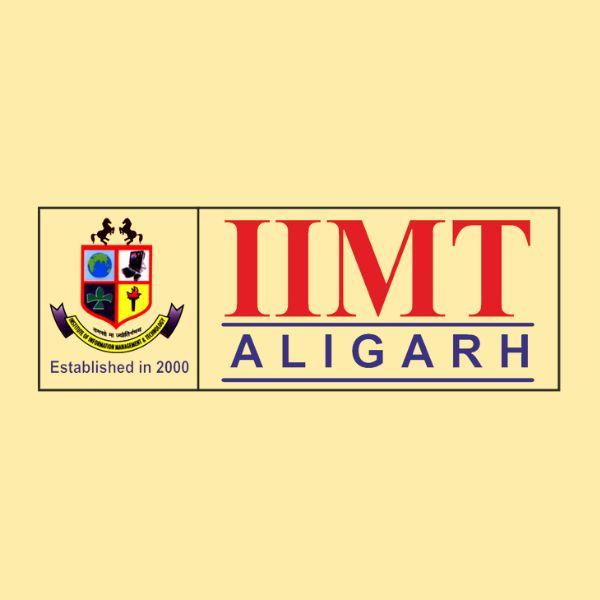
About IIMT
The Institute of Information, Management and Technology (IIMT) is a premier institution based in Aligarh, Uttar Pradesh, Established in 2000 by Manas Sewa Samiti. The Institute has achieved a status of distinction by following the path envisioned by its founder Dr. D.S. Mahalwar, a renowned educationist.
The Institute offers UG & PG programmes in various streams like Education, Management, Commerce, Computer Science, Basic Science & Life Science. It caters to more than 2500 students with well-qualified and experienced faculty members.
The Institute believes in serious academic pursuit and encourages original and innovative thinking through debates, discussions, and other co-curricular and extracurricular activities at all levels. By embodying the principles of entrepreneurship, excellence, and professionalism, IIMT has produced a new generation of managers and professionals over the years.

The Establishment and Impact of the Institute by Manas Seva Samiti
Introduction
In the year 2000, a significant educational institution was established by the Manas Seva Samiti. This society was formed with the guidance and inspiration of Dr. D.S. Mahalwar, a well-known educationist. The primary aim of this institute was to serve as an international social center, providing quality education to students not only from Aligarh but also from neighboring areas in Uttar Pradesh and other states. This essay will explore the background, objectives, and impact of the institute in detail, emphasizing its contributions to education and society.
Background
The turn of the millennium brought about many changes and opportunities in various fields, including education. In the year 2000, the Manas Seva Samiti recognized a pressing need for quality education that could cater to a diverse student population. Led by Dr. D.S. Mahalwar, who was renowned for his commitment to educational excellence, the society embarked on establishing an institute that would address this need.
Dr. Mahalwar, a distinguished educationist, had long been involved in educational reforms and initiatives. His vision was to create an institution that would not only impart academic knowledge but also foster holistic development among students. The Manas Seva Samiti was established with the goal of transforming this vision into reality. The society’s formation was driven by a commitment to enhancing educational standards and providing opportunities for students to excel.
Objectives of the Institute
The primary objective of the institute was to offer high-quality education to students from Aligarh and its surrounding regions. Recognizing that education is a powerful tool for social and economic development, the institute aimed to provide a platform where students could acquire knowledge and skills that would benefit them in their future endeavors.
- Educational Excellence: The institute was designed to offer a curriculum that met international standards. This meant incorporating advanced teaching methods, using modern technology, and ensuring that students received a well-rounded education.
- Holistic Development: Beyond academics, the institute focused on the overall development of students. This included activities and programs that promoted physical health, mental well-being, and social skills. The goal was to prepare students not only for exams but for life.
- Inclusivity: The institute aimed to be inclusive, providing opportunities for students from diverse backgrounds. It sought to bridge gaps in education by offering support to students from underprivileged families and ensuring that financial constraints did not hinder their learning.
- Community Engagement: The institute recognized the importance of community involvement in the educational process. It aimed to engage with the local community and contribute to social development through various outreach programs and initiatives.
Impact on Education
Since its establishment, the institute has had a significant impact on the educational landscape in Aligarh and its neighboring areas. Its contributions can be observed in several key areas:
- Improved Educational Standards: The institute has played a crucial role in raising educational standards in the region. By adhering to international educational practices and incorporating innovative teaching methods, it has set a benchmark for other institutions to follow.
- Student Achievements: Students from the institute have consistently performed well in academic and extracurricular activities. The emphasis on a holistic approach to education has resulted in well-rounded individuals who excel in various fields.
- Enhanced Learning Environment: The institute has created a conducive learning environment by providing state-of-the-art facilities and resources. Modern classrooms, libraries, laboratories, and technology-driven teaching aids have contributed to an enriched educational experience.
- Support for Underprivileged Students: One of the notable impacts of the institute has been its support for students from economically disadvantaged backgrounds. Through scholarships, financial aid, and support programs, the institute has enabled many students to pursue education who otherwise might have been unable to do so.
- Community Development: The institute’s commitment to community engagement has led to numerous outreach programs and initiatives. These programs have addressed various social issues, promoted awareness, and contributed to the overall development of the community.
Challenges and Solutions
Despite its successes, the institute has faced several challenges along the way. Addressing these challenges has required strategic planning and adaptability.
- Financial Constraints: Ensuring adequate funding for infrastructure, resources, and student support programs has been a continuous challenge. The institute has addressed this by seeking support from donors, government grants, and establishing partnerships with other organizations.
- Maintaining Quality: As the institute has grown, maintaining the quality of education and services has been a priority. Regular assessments, feedback mechanisms, and professional development for staff have been implemented to ensure high standards are upheld.
- Adapting to Technological Changes: The rapid advancement of technology has necessitated constant updates to the curriculum and teaching methods. The institute has invested in technology and provided training for educators to keep pace with these changes.
- Inclusivity and Diversity: While the institute strives to be inclusive, managing a diverse student population requires ongoing efforts to address different needs and backgrounds. The institute has developed programs and support systems to cater to this diversity effectively.
Future Prospects
Looking ahead, the institute plans to continue its mission of providing quality education and contributing to societal development. Future initiatives include:
- Expansion of Facilities: To accommodate a growing number of students and enhance educational offerings, the institute plans to expand its facilities. This includes building new classrooms, laboratories, and recreational areas.
- Curriculum Development: The institute will continue to update and refine its curriculum to meet the evolving needs of students and the demands of the job market. Incorporating new subjects and interdisciplinary approaches will be a focus.
- Strengthening Community Ties: The institute aims to strengthen its engagement with the community through more outreach programs and collaborations with local organizations. This will enhance its impact and foster stronger community relationships.
- Innovative Teaching Methods: Embracing new teaching methodologies and technologies will remain a priority. The institute will explore innovative approaches to enhance learning and ensure that students are well-prepared for future challenges.
Conclusion
The establishment of the institute by the Manas Seva Samiti in 2000 marked a significant milestone in the field of education. Guided by the vision of Dr. D.S. Mahalwar, the institute has successfully contributed to educational excellence, holistic development, and community engagement. Its impact on the region and its commitment to overcoming challenges reflect its dedication to providing quality education and fostering positive change. As it moves forward, the institute’s continued efforts to adapt and innovate will undoubtedly contribute to its ongoing success and the advancement of education in the region.














